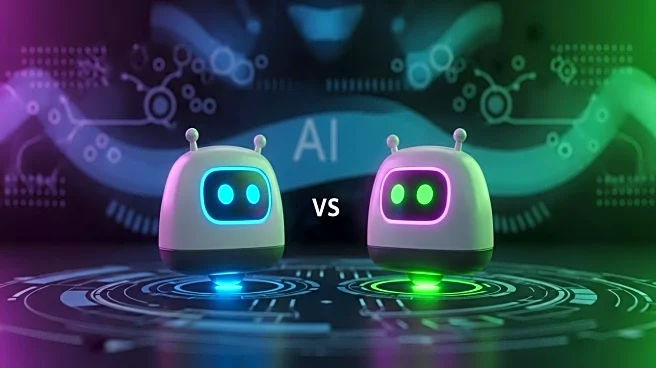What's Happening?
The AI chatbot market is expanding rapidly, with new entrants vying for attention alongside established names like ChatGPT. Lesser-known chatbots such as Luzia, Elicit, Poe, and Le Chat are offering unique features to differentiate themselves. Luzia targets students with a focus on study and life guidance, while Elicit is tailored for academic research, providing detailed reports and systematic reviews. Poe aggregates multiple AI models, including ChatGPT and Gemini, into one platform, though it comes with a subscription cost. Le Chat emphasizes speed and privacy, appealing to users concerned about data security.
Why It's Important?
The proliferation of AI chatbots reflects the growing demand for personalized digital assistants across various sectors. Each chatbot's unique offerings cater to specific user needs, from academic research to privacy concerns. This diversification in the market could lead to increased competition, driving innovation and potentially lowering costs for consumers. As AI becomes more integrated into daily life, the ability of these chatbots to provide tailored experiences will be crucial in determining their success and adoption.
What's Next?
As the market continues to evolve, these emerging chatbots may refine their features to better compete with established players like ChatGPT. This could involve enhancing user interfaces, expanding functionalities, or adjusting pricing models to attract a broader audience. Additionally, ongoing advancements in AI technology may lead to the development of even more sophisticated chatbots, capable of handling complex tasks and providing deeper insights.
Beyond the Headlines
The rise of AI chatbots also raises questions about data privacy and ethical use of AI. As these tools become more prevalent, ensuring that user data is protected and used responsibly will be a key concern. Moreover, the reliance on AI for information and decision-making could impact human cognitive skills, necessitating a balanced approach to AI integration.








